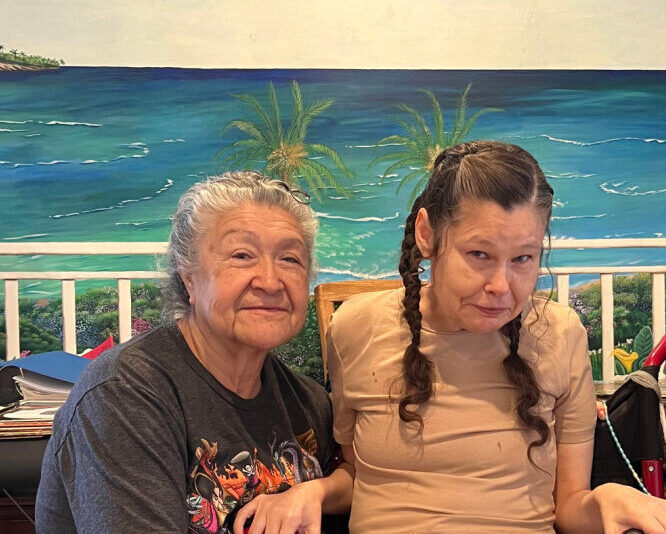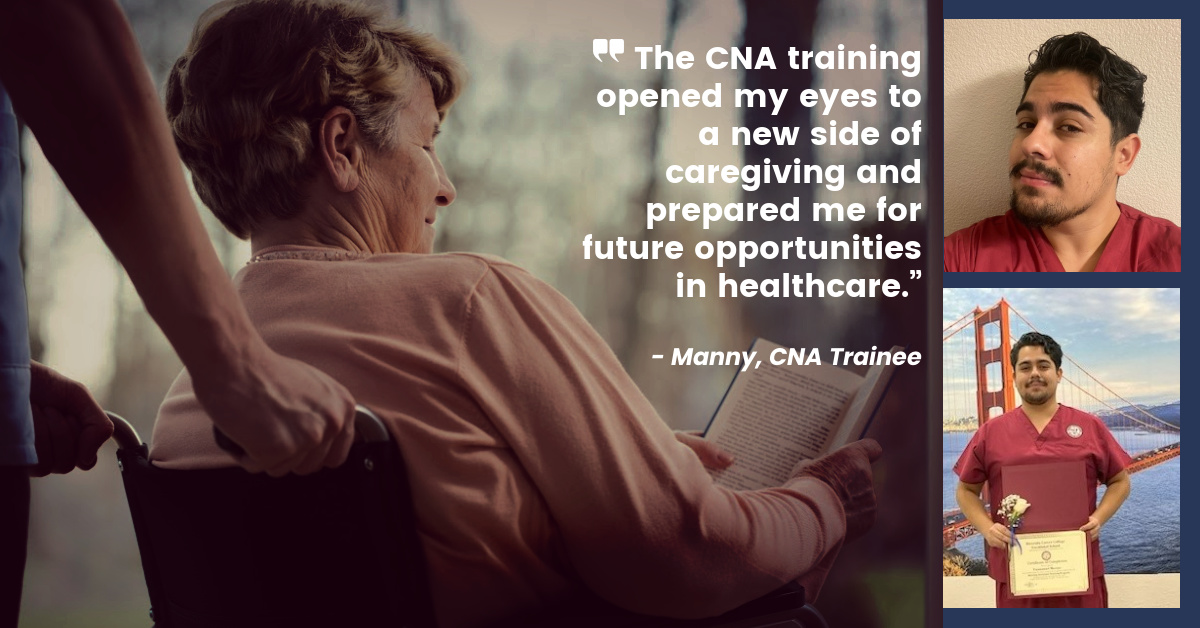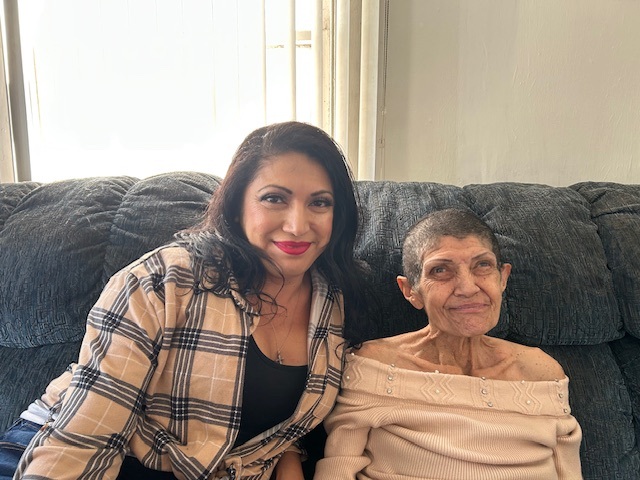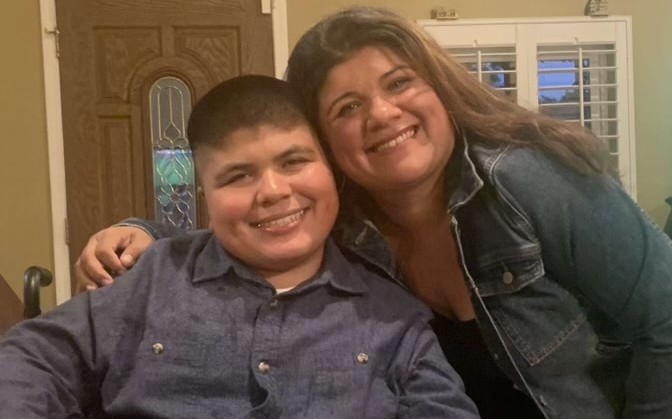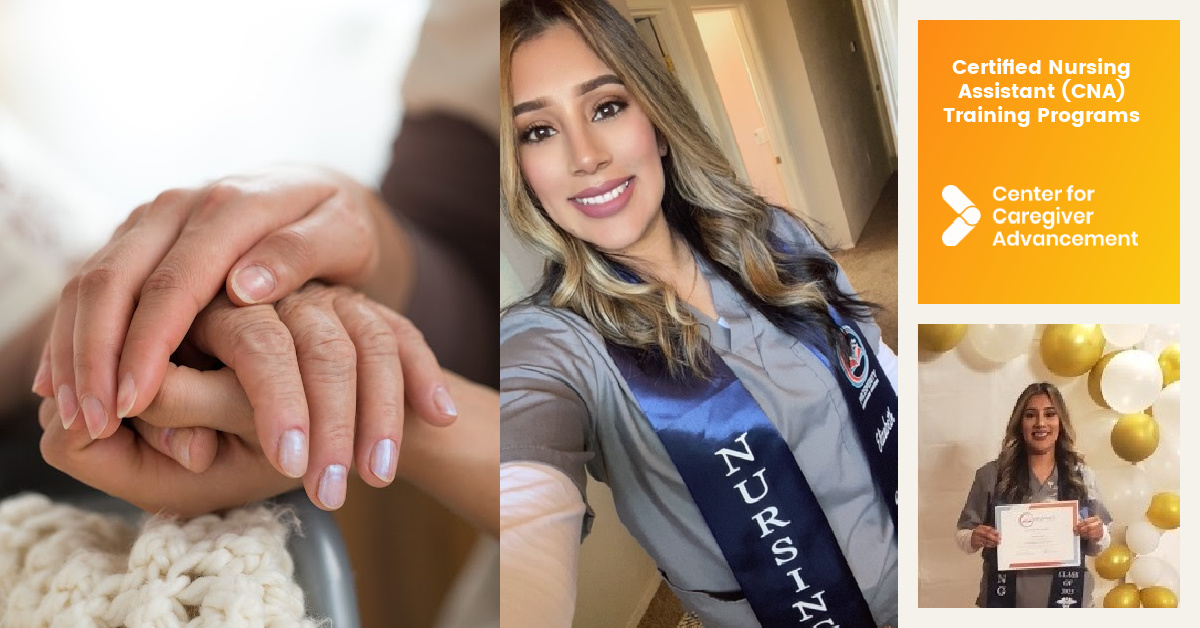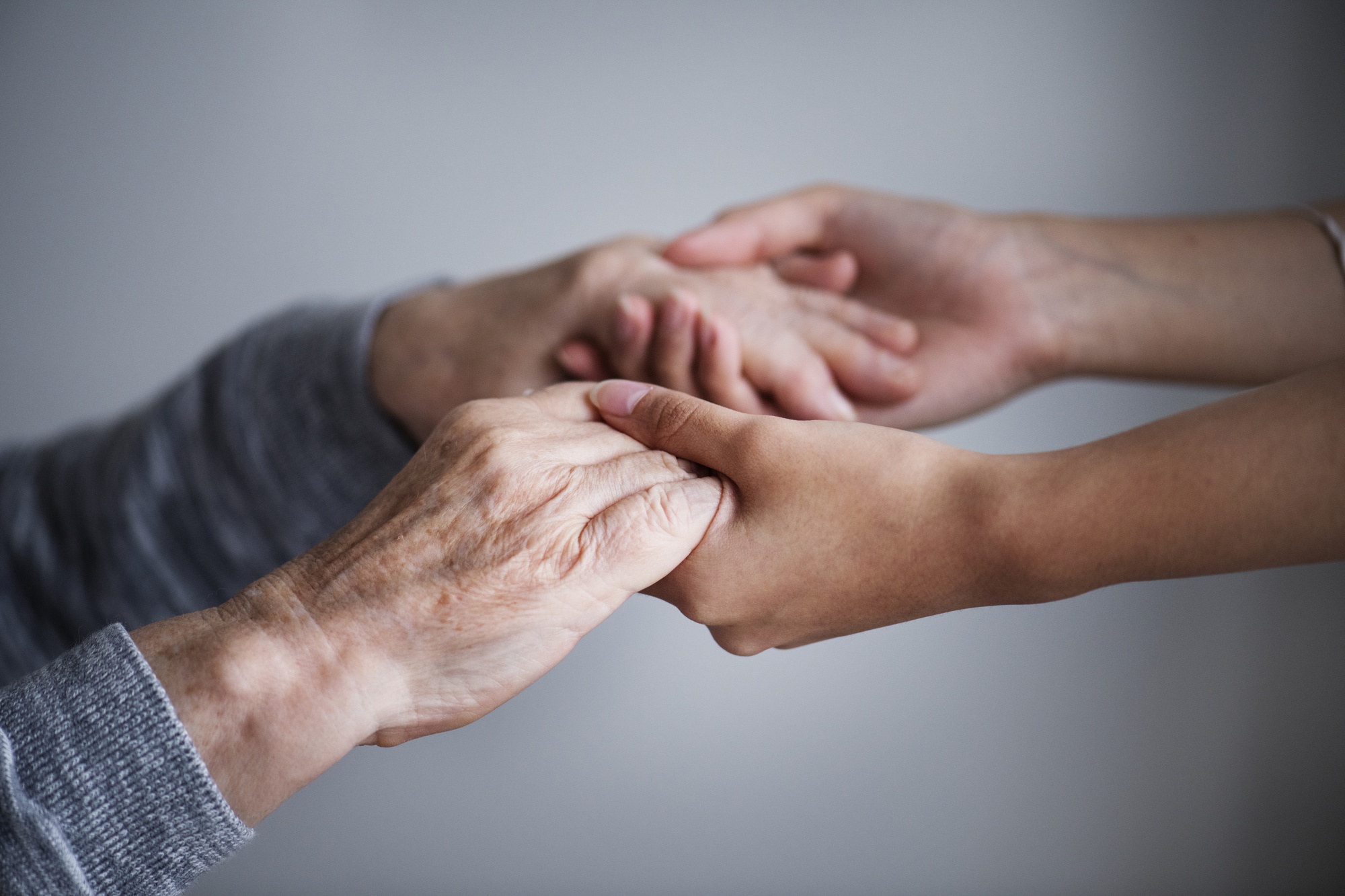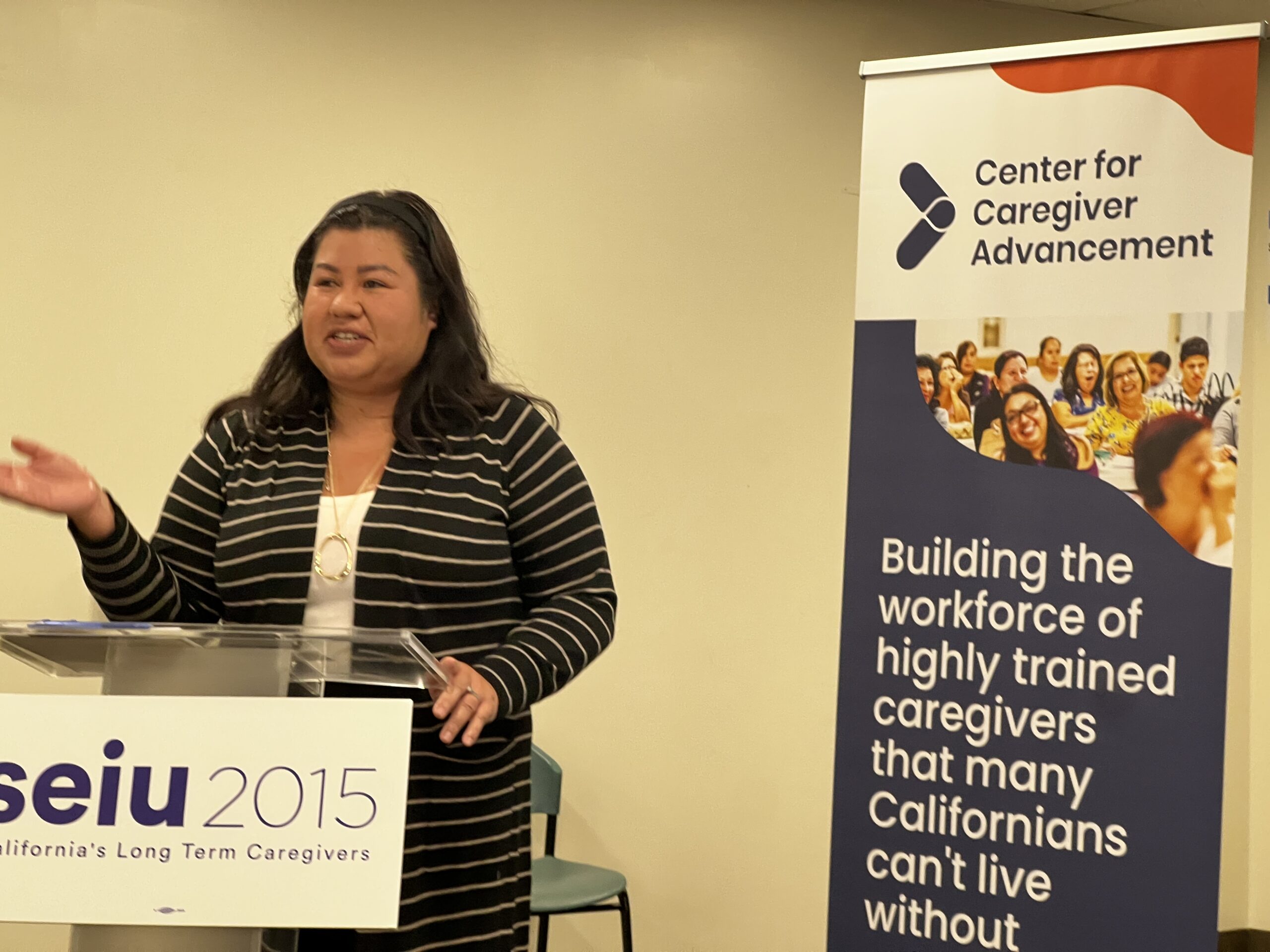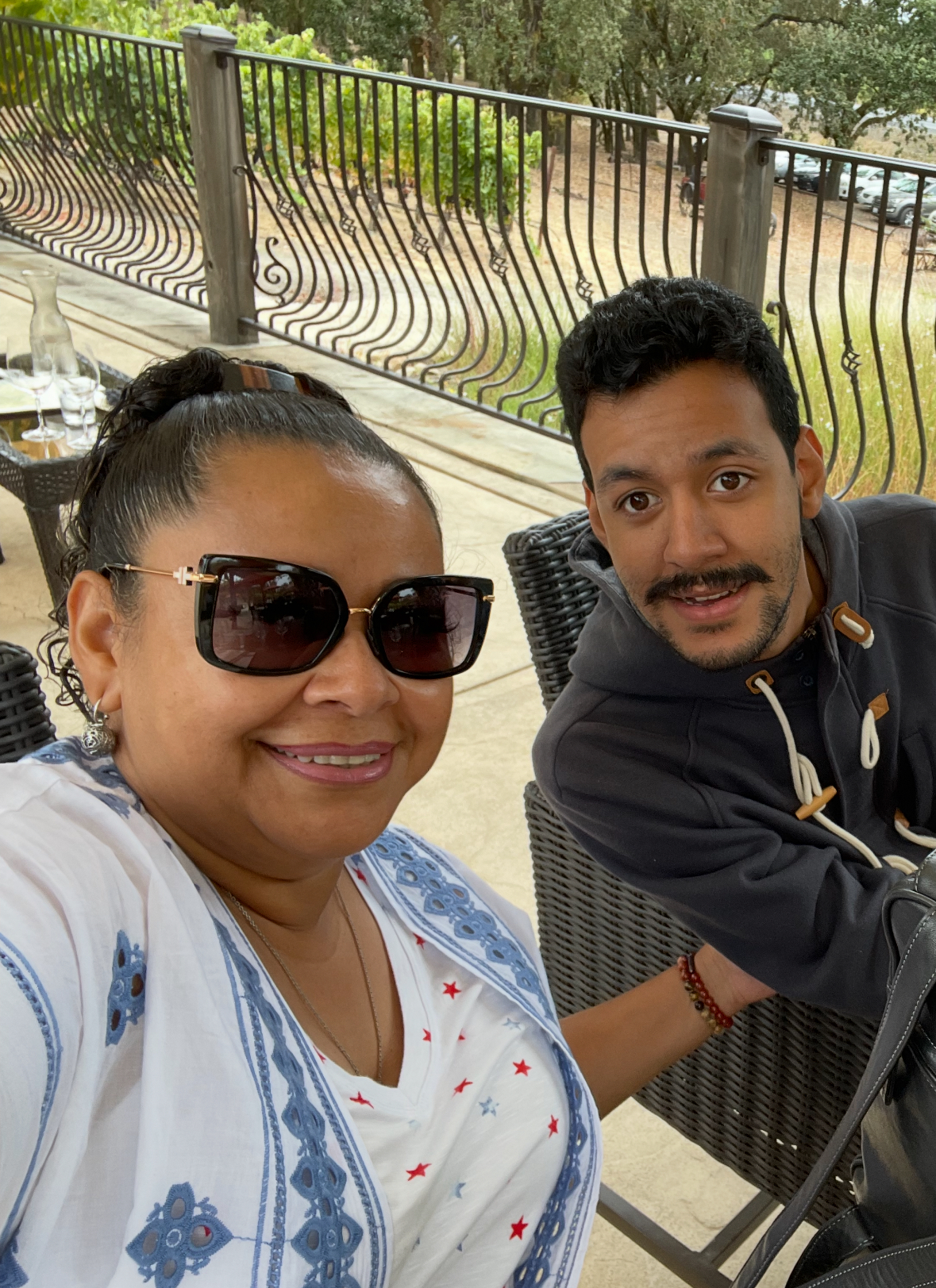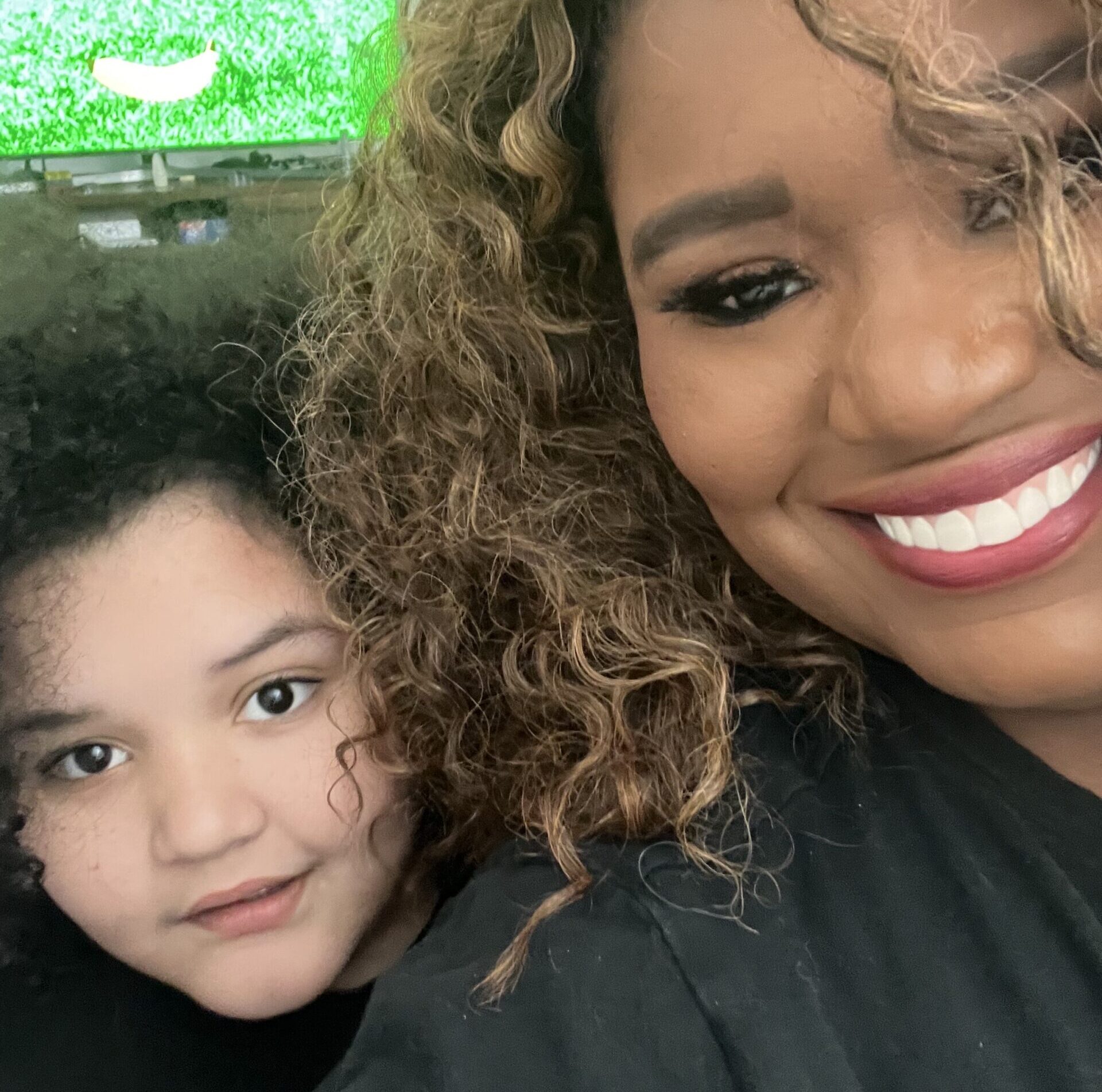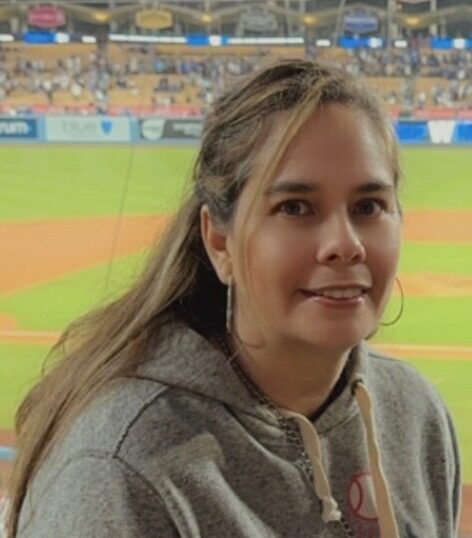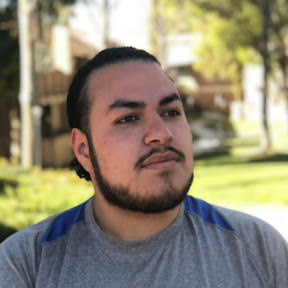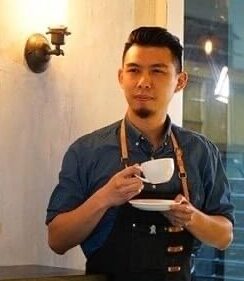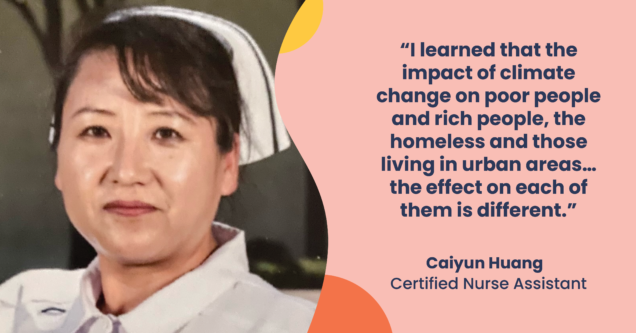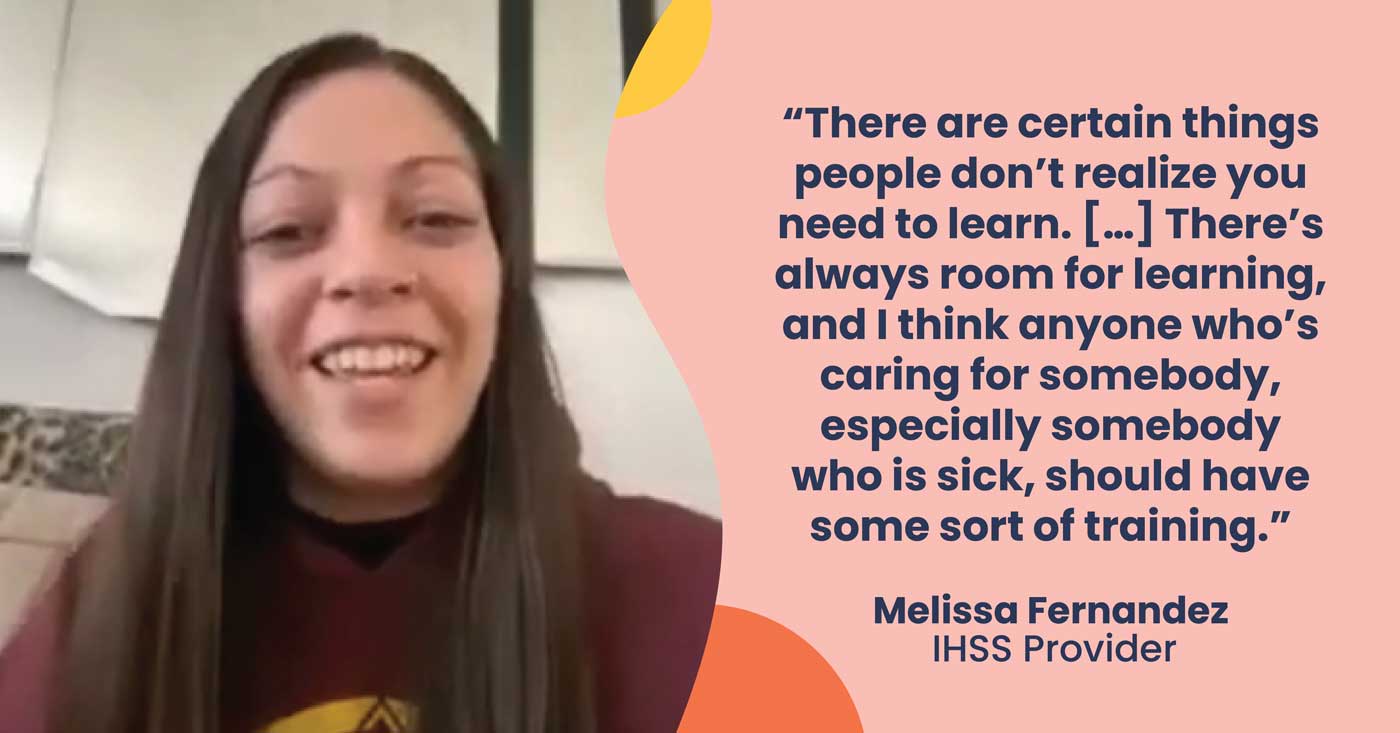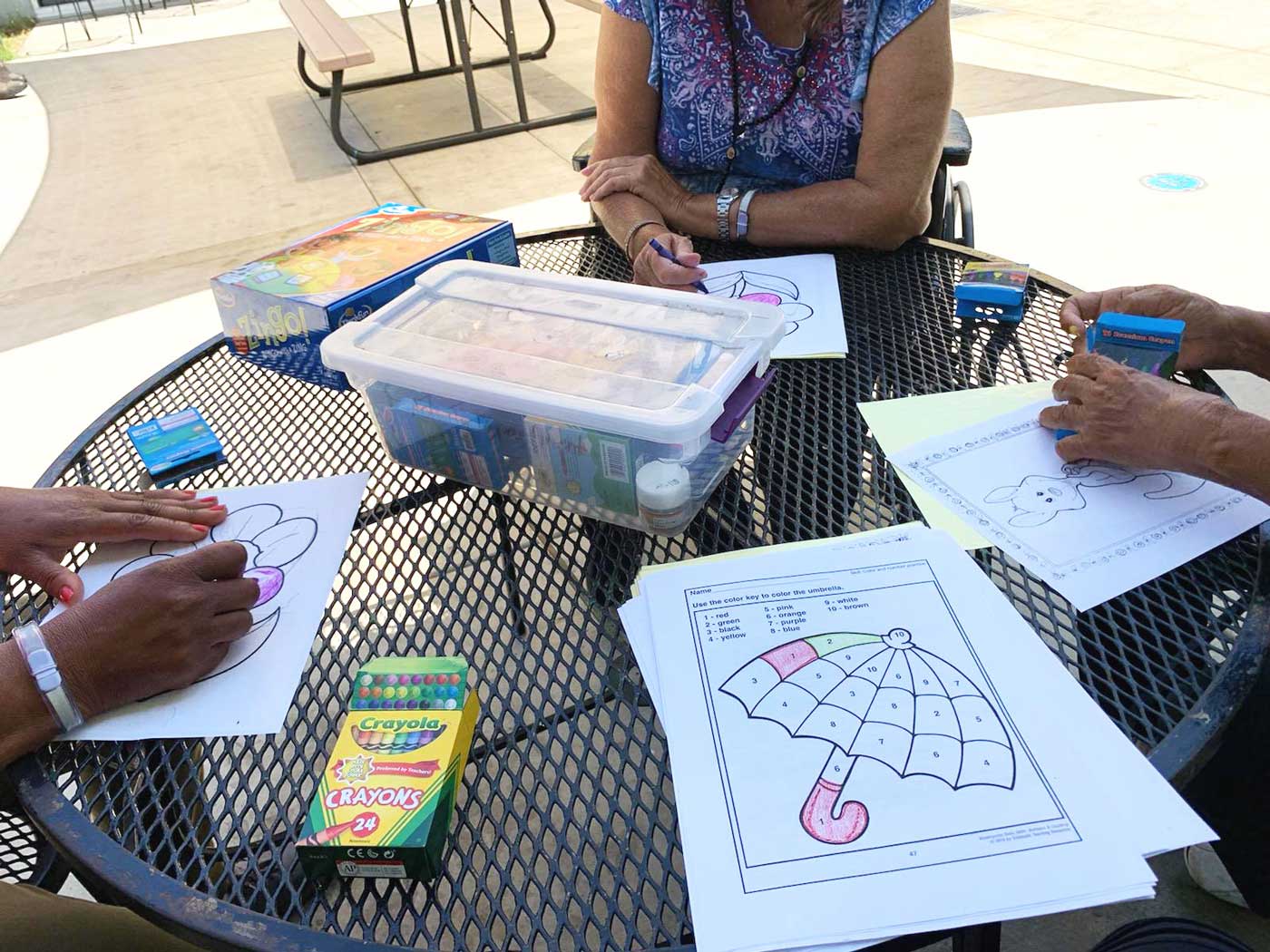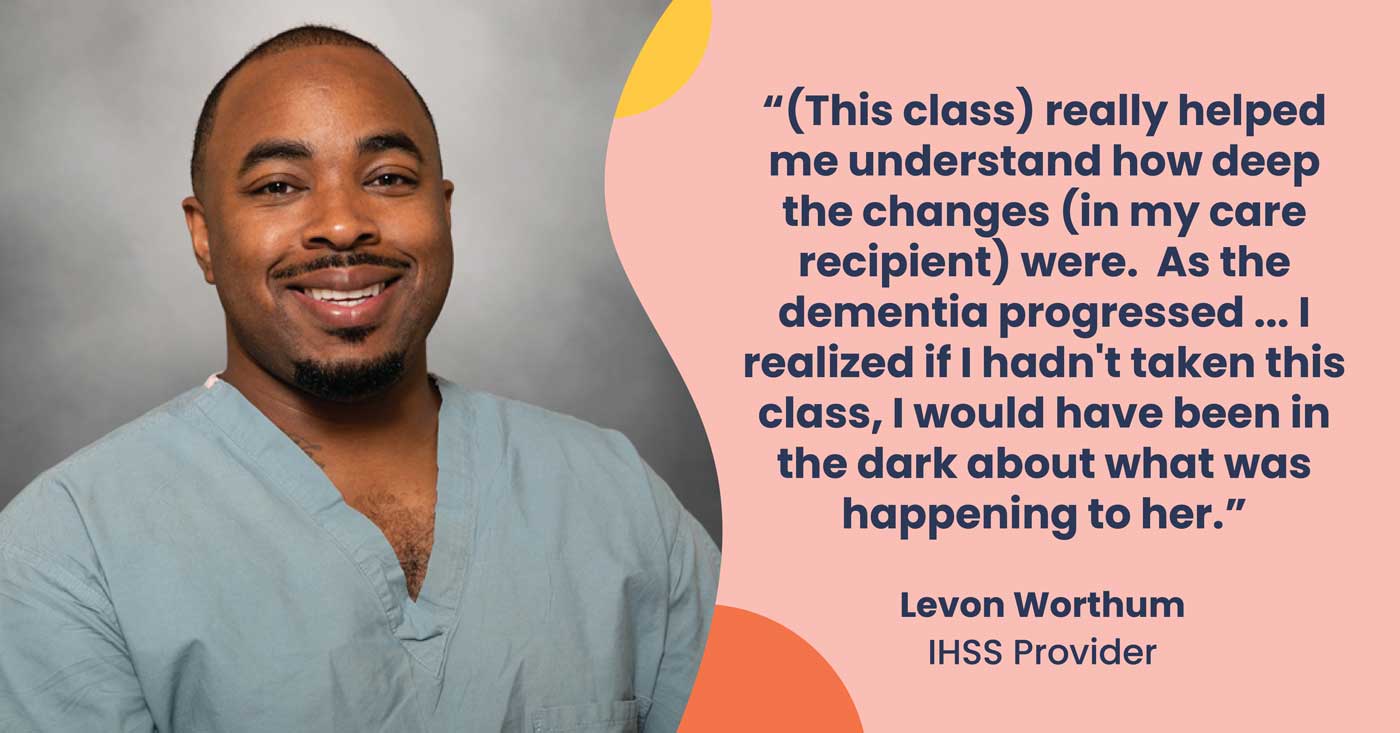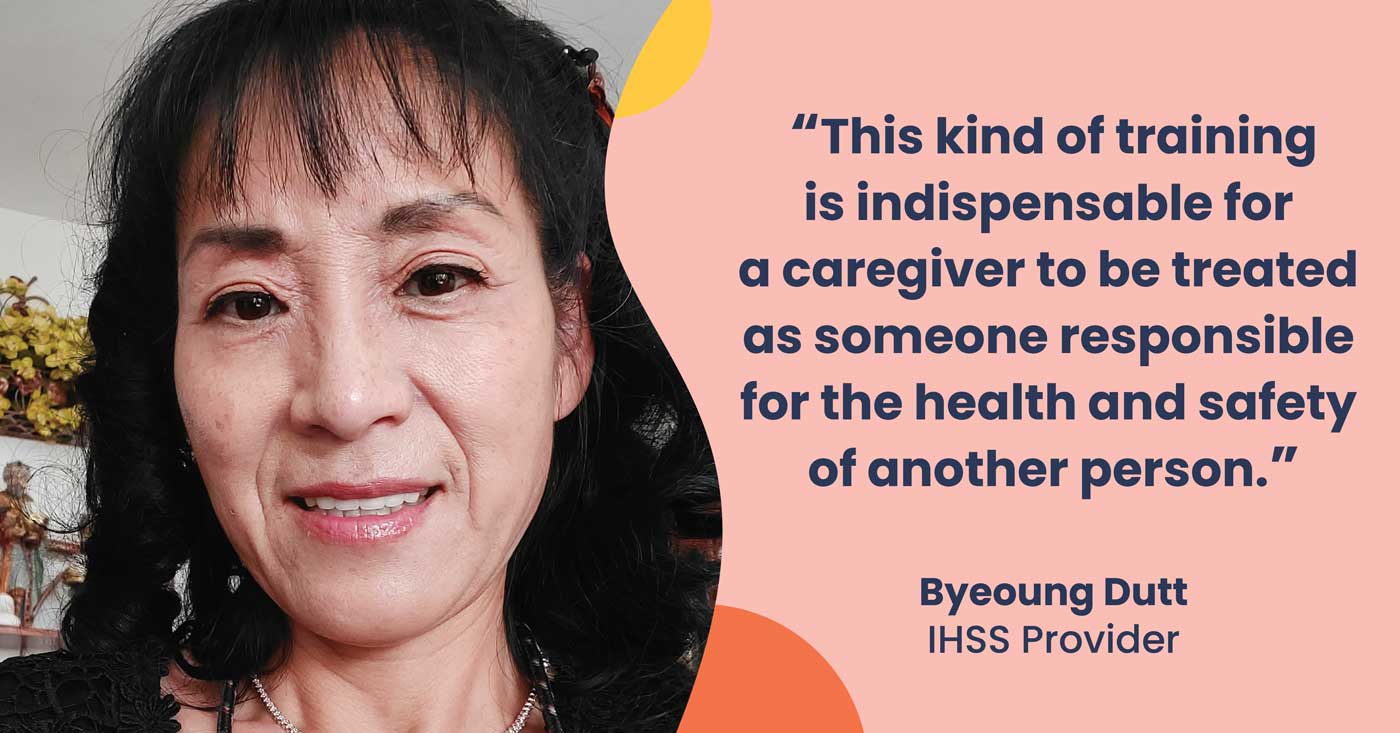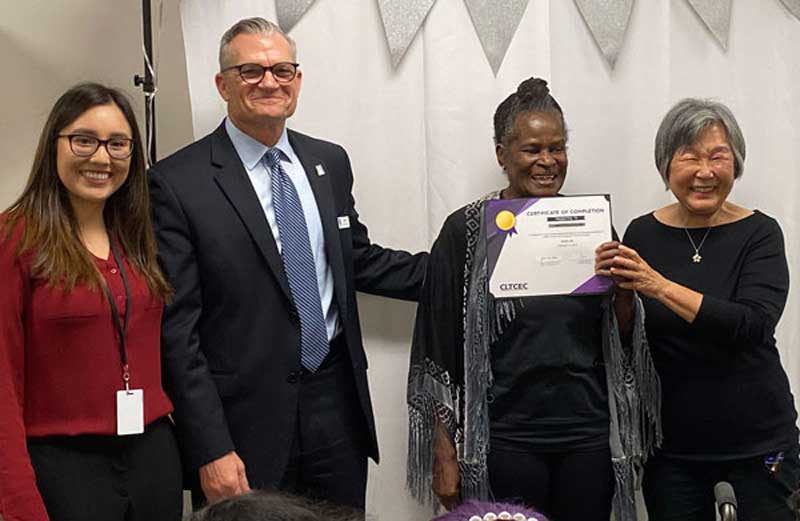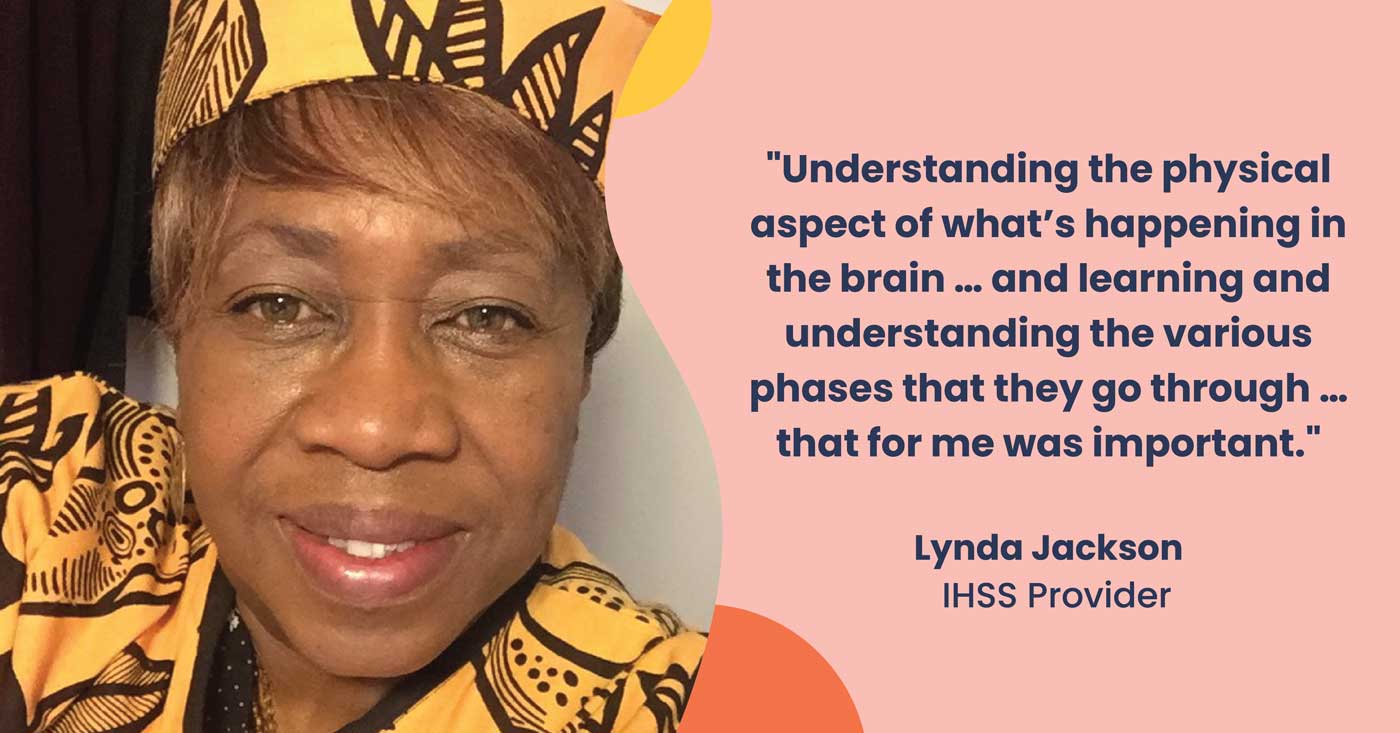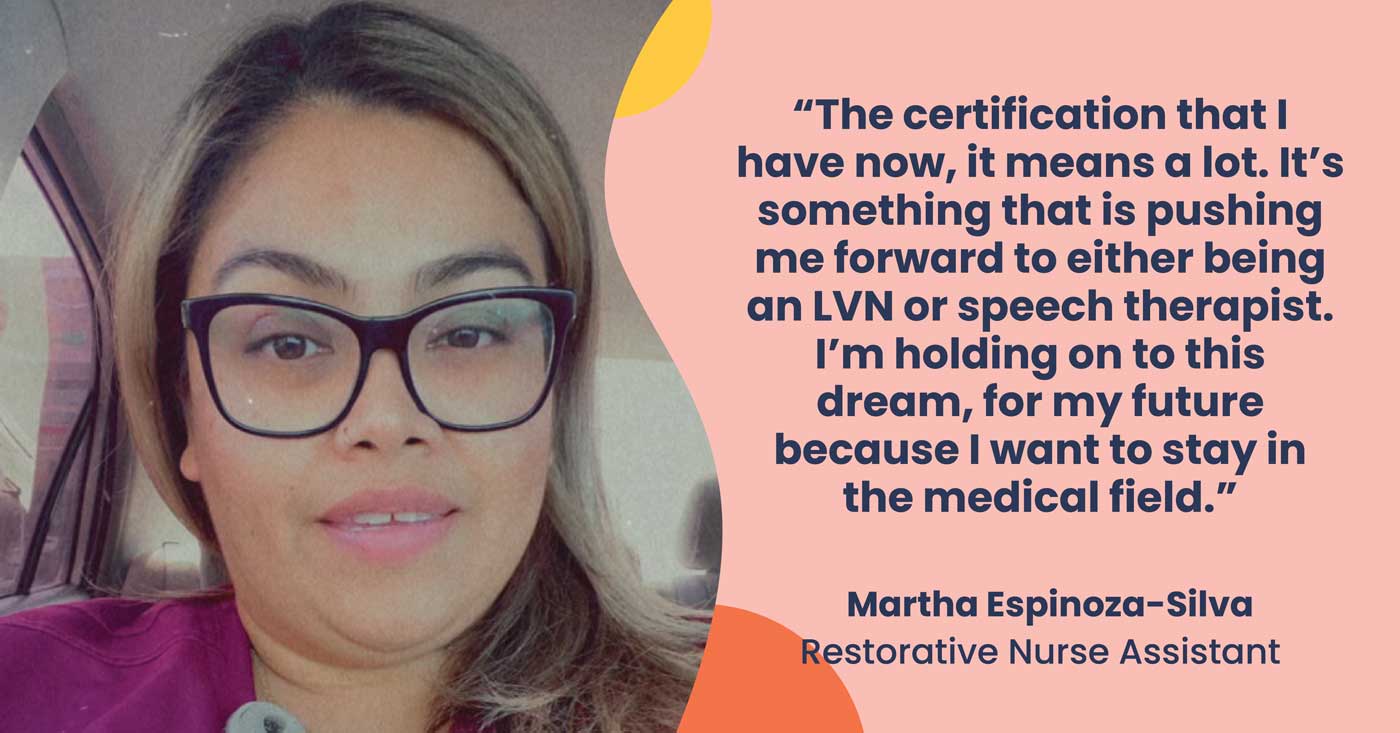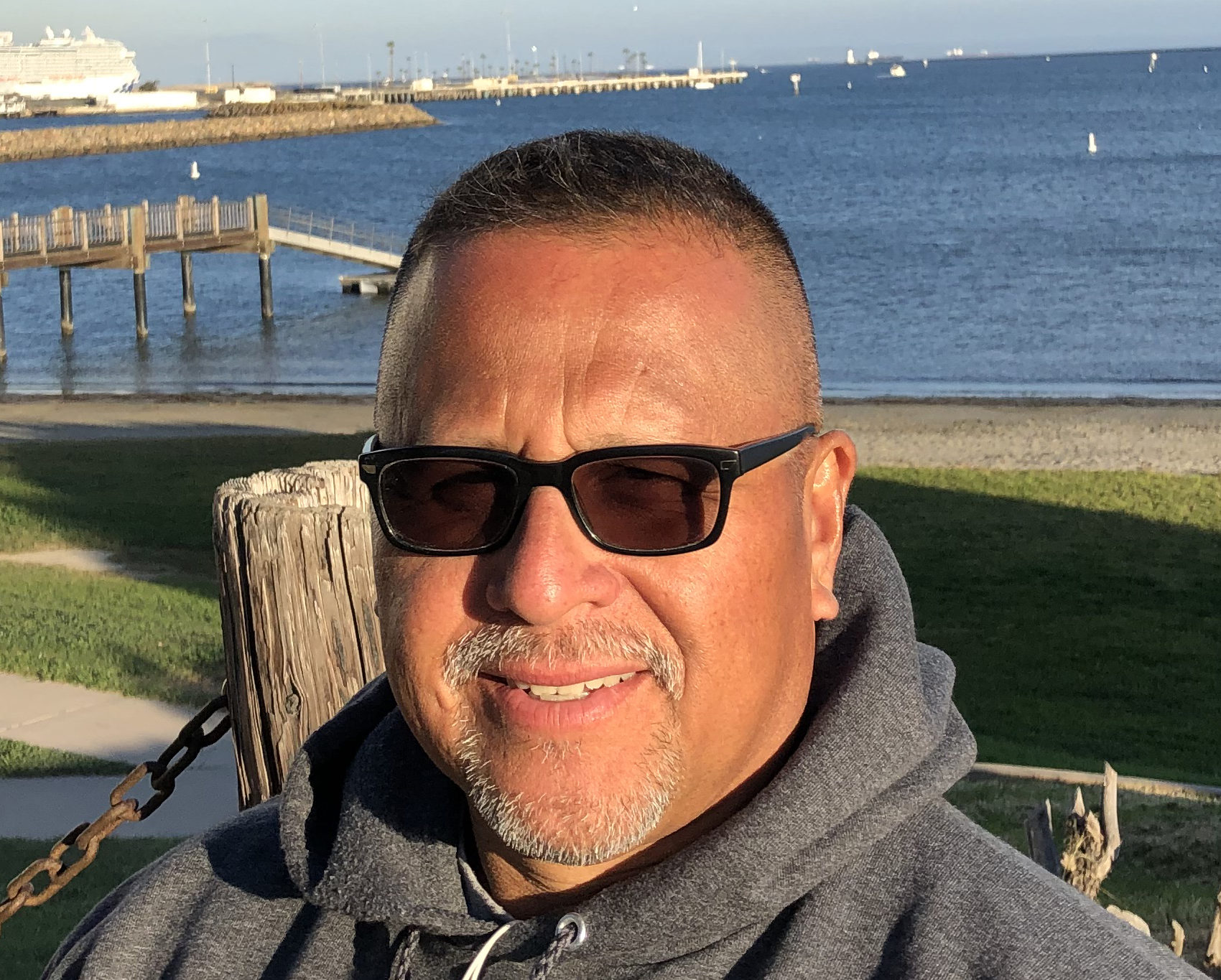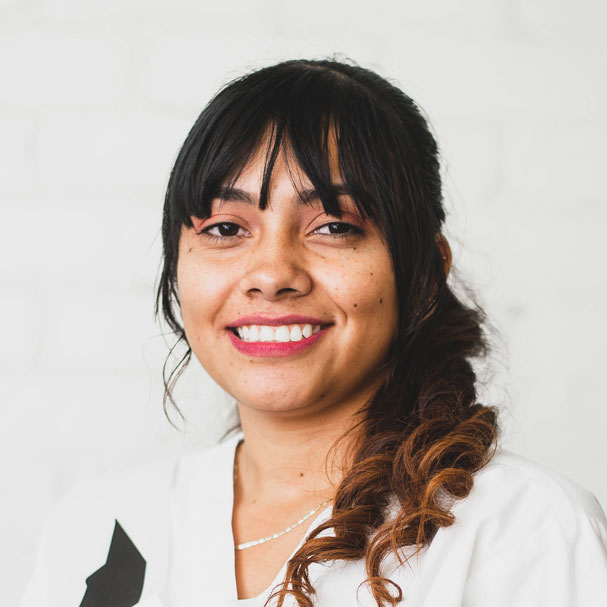Maria Johnson’s life changed forever when her daughter, Michelle Christine, had a severe seizure at just seven months old. This led to a disability. The seizure, triggered by a high fever after routine immunizations, led to brain damage caused by the emergency medication used to stop the convulsions. From that moment, Maria embraced the role of caregiver, dedicating her life to supporting Michelle, who is now a non-verbal 53-year-old woman in a wheelchair.
I have been dedicated to Michelle for many years. She is now a beautiful, adorable, non-verbal adult lady, and I am her primary care provider.”
Over the years, Maria balanced work, family, and caregiving. With help from her husband and a supportive caregiver through the In-Home Supportive Services (IHSS) program, she managed to work and care for Michelle. Now retired, Maria’s days revolve around her daughter’s well-being — a role she fulfills with unwavering love and patience.
Finding Support and Reinforcement Through CCA Caregiver Training
Despite decades of experience, Maria remained eager to learn new ways to care for Michelle. She discovered the Center for Caregiver Advancement (CCA) through messages she received from IHSS and decided to enroll in the IHSS Essentials course funded through LA CARE in September 2024, which provided Home Care Integration Training.
I thought, ‘That class might help me learn how to take even better care of Michelle.’ And it did — it reinforced what I already knew, but everything in the course was very helpful.”
One of the most valuable lessons from the CCA class for Maria was learning proper lifting and transferring techniques. “My daughter is getting heavier as she ages, and I am not getting any younger,” says Maria. “Learning how to lift and move her safely and easily has made a huge difference.”
Caregiving for a Person with Disabilities Presents Unique Challenges
While the CCA course provided valuable insights, Maria noted that some lessons didn’t fully apply to her unique situation. “The class taught us how to interact with our care consumer, but Michelle communicates non-verbally,” she explains. “For example, I can’t hand her a toothbrush and tell her how to brush her own teeth — I have to brush her teeth myself.”
Maria voiced her feedback to her instructor, suggesting a specialized class for caregivers of non-verbal individuals. Her instructor appreciated Maria’s input and has passed it along to the CCA team that develops curricula for their caregiver training programs.
Still, Maria found the CCA training enriching, especially lessons on nutrition and the importance of self-care.
I learned how to incorporate more nutritious foods into Michelle’s diet to keep her healthy. I learned that I need to take time for myself, too.”
A Caregiver’s Legacy and Hope for the Future of Her Daughter With Disability
At 78 years old, Maria continues to care for Michelle with boundless energy and dedication, though she is mindful of the future. “I’m in the process of finding someone to care for Michelle after I’m gone,” she says. “I’m talking to my granddaughter and exploring the possibility of a conservatorship. I need to know Michelle will be taken care of.”
Maria’s wisdom extends to aspiring caregivers. She has some advice for those who may be considering a role as a caregiver. “Your heart needs to be in it,” she advises.
It’s not easy to care for someone with a disability — you need to have a big heart for humanity. For those who do, this work is incredibly rewarding.”
Maria Johnson’s story is a testament to the power of love, resilience, and the willingness to keep learning. Her experience highlights the invaluable role of caregiver training and the profound impact it can have on both caregivers and the consumers who receive their care.
“I’m proud of myself for learning how to use Zoom to take the CCA class, and I’m using so many caregiving tips I learned in the training,” she says. And through her dedication, she inspires countless others to embrace caregiving with compassion and courage.



